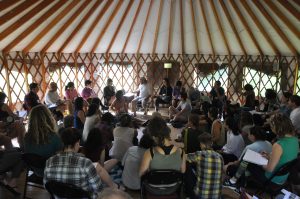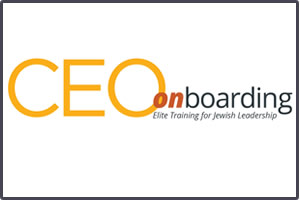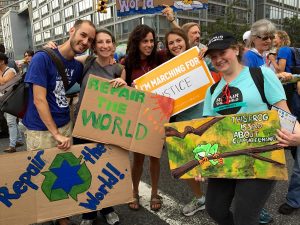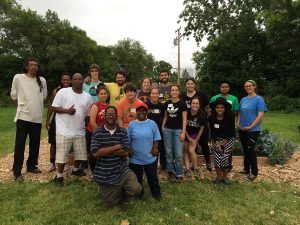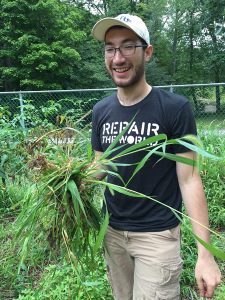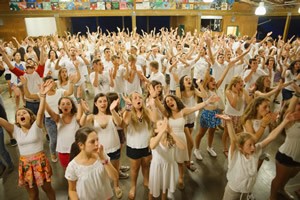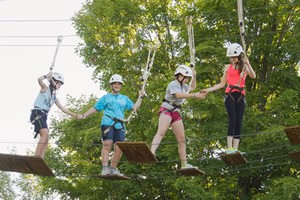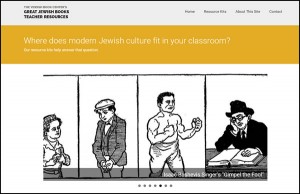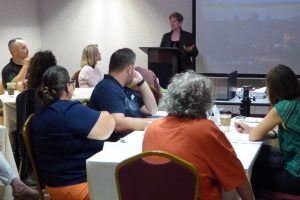 In public and private schools across the country, millions of students each year learn about Judaism, the Arab-Israeli conflict, and other related areas. For these learning experiences to be both positive and grounded in fact, educators leading them need relevant professional development opportunities and support. With this guiding principle, the Institute for Curriculum Services works with social studies textbook publishers, develops curricular resources, and trains middle and high school social studies teachers around the country to improve the quality of education on Jewish subjects.
In public and private schools across the country, millions of students each year learn about Judaism, the Arab-Israeli conflict, and other related areas. For these learning experiences to be both positive and grounded in fact, educators leading them need relevant professional development opportunities and support. With this guiding principle, the Institute for Curriculum Services works with social studies textbook publishers, develops curricular resources, and trains middle and high school social studies teachers around the country to improve the quality of education on Jewish subjects.
As an experienced educator, I can attest to the invaluable roles that accuracy and objectiveness play in the classroom, especially in discussion of sensitive, complex issues. In my personal experience, ICS’s detailed lesson plans, workshops, and conferences augmented my ability to provide a diverse community of students with a more impartial, open-minded, and global perspective on Jews, Judaism, and Israel.
– Michael Waxman, Social Studies Teacher, Stuyvesant High School, New York
Now, with its new National Professional Development Scale-up Initiative, ICS is poised to offer even more professional development to pre-service and in-service teachers. In particular, ICS will dramatically increase its offerings to educators and will begin hosting four regional Summer Institutes each year to provide in-depth education on the Arab-Israeli conflict and peace process. With three new regional trainers, ICS also will have a stronger presence at educator conferences, schools of education, and school districts
Honestly, this was one of the most comprehensive (Jewish history) and human (stories, psds, videos) presentations of content I have attended. Every lesson we had an opportunity to “try out” was an investment in my future practice and my familiarity with the content. The willingness of the presenters to be accessible via post session conversations or email was remarkable.
– Laura Keldorf, Language Arts/Social Studies Teacher, Riverdale High School
A natio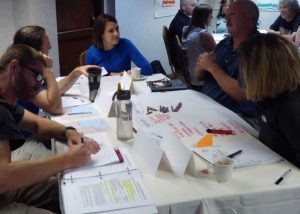 nal nonprofit initiative of the San Francisco-based Jewish Community Relations Council and the Jewish Council for Public Affairs, ICS builds deep and lasting relationships with teachers in American classrooms and, ultimately, improves the accuracy and balance of their instruction about Jews, Judaism, and Israel. At scale, this initiative will engage over 2,000 teachers and potentially hundreds of thousands of high school students, Jewish and non-Jewish, each year.
nal nonprofit initiative of the San Francisco-based Jewish Community Relations Council and the Jewish Council for Public Affairs, ICS builds deep and lasting relationships with teachers in American classrooms and, ultimately, improves the accuracy and balance of their instruction about Jews, Judaism, and Israel. At scale, this initiative will engage over 2,000 teachers and potentially hundreds of thousands of high school students, Jewish and non-Jewish, each year.
More information about ICS is available at www.icsresources.org.
The Jim Joseph Foundation has awarded more than $660,000 to ICS.
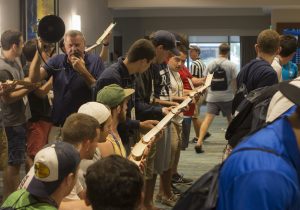 As the only international Jewish fraternity,
As the only international Jewish fraternity,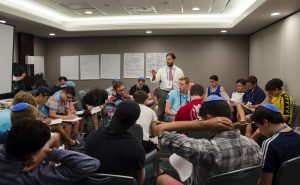 For the Tikkun Olam Track, AEPi staff led a Jewish philanthropy program that had participants run a phonathon/textathon for an hour with a goal of raising $1000 to show the ease in which fundraising can be done at a local level at each chapter). The group exceeded the goal, and the program was immediately praised by many participants, some of whom had never before solicited a gift.
For the Tikkun Olam Track, AEPi staff led a Jewish philanthropy program that had participants run a phonathon/textathon for an hour with a goal of raising $1000 to show the ease in which fundraising can be done at a local level at each chapter). The group exceeded the goal, and the program was immediately praised by many participants, some of whom had never before solicited a gift.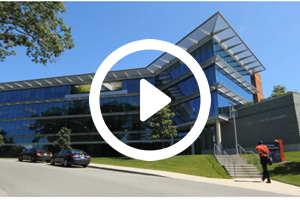
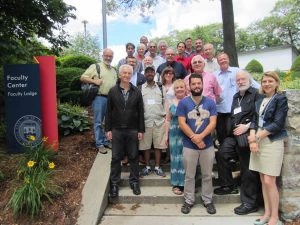
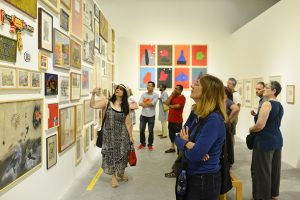
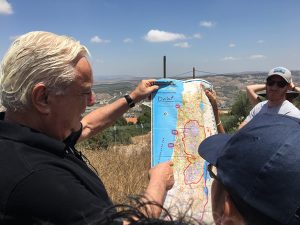
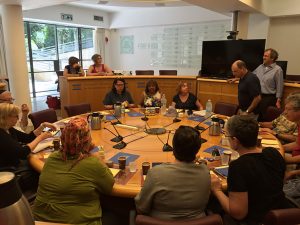
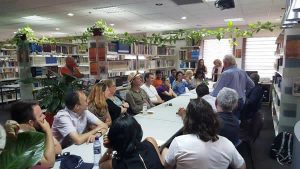
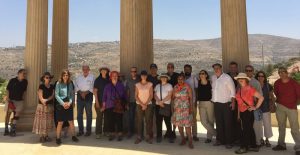
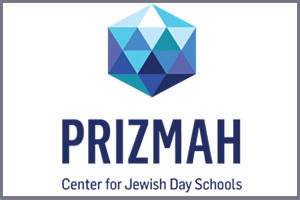
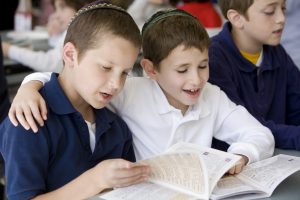 ve close to four hundred day schools across denominations—and in turn their nearly 100,000 students—through services that:
ve close to four hundred day schools across denominations—and in turn their nearly 100,000 students—through services that: enings and field-building activities promoting research and innovation, Prizmah will elevate the place of day schools within the Jewish communal agenda and beyond. And in February, the Prizmah North American Jewish Day School Conference will harness the “Power of Story”— as participants will learn about crafting, telling, listening, and responding to the powerful stories in their work and community in order to be more effective and to lead their schools forward.
enings and field-building activities promoting research and innovation, Prizmah will elevate the place of day schools within the Jewish communal agenda and beyond. And in February, the Prizmah North American Jewish Day School Conference will harness the “Power of Story”— as participants will learn about crafting, telling, listening, and responding to the powerful stories in their work and community in order to be more effective and to lead their schools forward.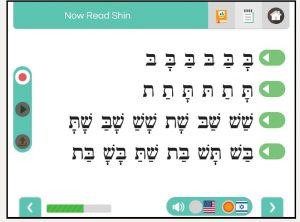 ng its fourth year, JCC Manhattan’s
ng its fourth year, JCC Manhattan’s  Synagogues and families tell JJP they are interested in the benefits that the Hebrew Homepage can offer all students, whether or not they are enrolled in JJP. Responding to this demand, JJP will roll out the Hebrew Homepage as a stand-alone service that any congregation or student can subscribe to, to strengthen their Hebrew acquisition. As a way of becoming a sustainable venture beyond the pilot funding phase, Hebrew Homepage will become a fee-for-service program that will help offset the philanthropic contributions that launched JJP.
Synagogues and families tell JJP they are interested in the benefits that the Hebrew Homepage can offer all students, whether or not they are enrolled in JJP. Responding to this demand, JJP will roll out the Hebrew Homepage as a stand-alone service that any congregation or student can subscribe to, to strengthen their Hebrew acquisition. As a way of becoming a sustainable venture beyond the pilot funding phase, Hebrew Homepage will become a fee-for-service program that will help offset the philanthropic contributions that launched JJP.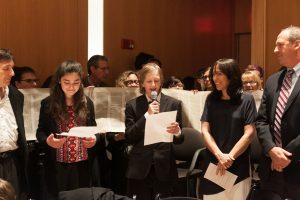 grade students and parents meet six times for family learning, and students meet weekly in their own class, Judaism On One Foot: Bring It Home and Making It Your Own. Students also study individually with a teacher to read and discuss their Torah portion, and develop a response to this portion that might be a video, musical performance, or an interactive experience for guests. The actual
grade students and parents meet six times for family learning, and students meet weekly in their own class, Judaism On One Foot: Bring It Home and Making It Your Own. Students also study individually with a teacher to read and discuss their Torah portion, and develop a response to this portion that might be a video, musical performance, or an interactive experience for guests. The actual 
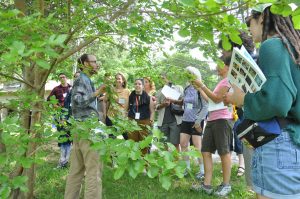
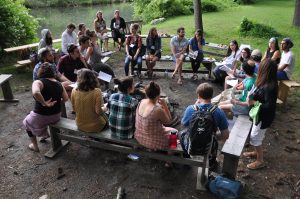 The 2014 report, Seeds of Opportunity: A National Study of Immersive JOFEE Education, demonstrated the growing demand for Jewish learning experiences grounded in the relationship between Jewish tradition and the natural world. The report showed that JOFEE programming breathes fresh life into Jewish organizations and fosters an emerging group of leaders and community members who may not have otherwise found connections to the broader Jewish community. As Jewish communities discover the power of JOFEE, the need for skilled leaders and educators increases as well.
The 2014 report, Seeds of Opportunity: A National Study of Immersive JOFEE Education, demonstrated the growing demand for Jewish learning experiences grounded in the relationship between Jewish tradition and the natural world. The report showed that JOFEE programming breathes fresh life into Jewish organizations and fosters an emerging group of leaders and community members who may not have otherwise found connections to the broader Jewish community. As Jewish communities discover the power of JOFEE, the need for skilled leaders and educators increases as well.